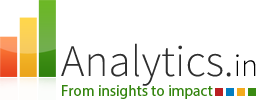Today, more and more organizations are taking advantage of data and the profound and wide-ranging insights that it has to offer. One industry that has begun to utilize data to inform decision-making is the healthcare industry. This is because data has the power to help healthcare organizations improve their processes in a number of critical ways.
Understanding how data can help healthcare organizations thrive is key to gaining a deeper and more nuanced view of how healthcare is evolving in the modern world. Here is how using data can help organizations excel in the healthcare industry.
Data Can Make Treatments More Effective
Improving the health outcomes of patients is one of the main benefits of data analytics in healthcare. By collecting, analyzing, and gleaning insights from patient-related data, healthcare organizations are able to provide better care to patients and reduce errors.
One of the key ways data allows improvement on efficacy of their treatments is by utilizing data to individualize care and identify patients who are more prone to certain ailments.
For example, if many individuals who work in the same industry develop a certain illness, data will allow healthcare organizations to help others from similar demographics stay healthy and, hopefully, avoid the specific illness.
Data Can Uncover New Treatments and Cures
Medical research is one of the important parts of healthcare and keeping the general public healthy. The more effective and efficient medical research becomes, the more new treatments for various ailments will be discovered. Data analytics can help streamline the process of conducting medical research while also allowing researchers to have a larger database to utilize when conducting data.
In today’s world, digital processes have become a normalized aspect of healthcare. One significant benefit of this is the fact that healthcare organizations now have the chance to record the data of scores of patients automatically. Accordingly, the more data is collected and utilized in medical research, the more treatments and cures can be discovered.
Data Can Help Healthcare Administrators Make Decisions
Data-driven decision-making in healthcare — the practice of utilizing data analysis to inform decisions — is a practice that is steadily gaining popularity among various organizations. This is because utilizing data analysis to make decisions helps healthcare leaders take a significant amount of risk out of their decision-making process.
For example, an administrator may assume that longer shifts for healthcare workers are better since it may allow employees to have additional off days for rest. When referring to data, it may be discovered that errors increase significantly among healthcare workers after working for six hours.
As such, healthcare administrators can utilize data to help them ensure that the decisions they make don’t have any surprising negative consequences.
Data Can Help Improve Efficiency
Anyone who has ever worked in a busy healthcare facility understands that it can be hectic given the seemingly endless number of processes and events going on simultaneously. This chaos can cause some processes to take longer amounts of time while also requiring more work for employees to get them done. Data analysis has the power to highlight areas that can be improved while also offering insights about ways to improve the efficiency of various processes.
The power of data analysis oftentimes lies in the fact that it can help one detect things that the human mind can’t detect on its own. These insights can be powerful as they can improve processes in a number of ways, such as by improving the efficiency of certain operations.
In healthcare facilities, becoming more efficient can result in being able to treat more patients while decreasing costs. As such, data analysis is becoming a staple in healthcare organizations keen on improving operations and becoming more efficient.
Data Can Help Data Management
In healthcare, scheduling, training, retaining, and managing staff can be incredibly difficult. To make matters worse, the healthcare industry has been experiencing a labor shortage, exacerbating the situation for healthcare administrators. Data analytics has the power to make managing healthcare facility staff easier and more manageable.
By utilizing data, healthcare facilities can improve in a number of ways when it comes to managing staff. These improvements range from analyzing data to discovering what makes medical staff quit to pinpointing key areas where new staff should be thoroughly trained.
By utilizing data analytics to manage employees, healthcare organizations will have an easier time thriving and operating successfully.
Data Analytics Is the Future of the Healthcare Industry
Data analytics is proving itself to be an incredibly powerful tool in the realm of healthcare. From helping uncover new treatments to improving the efficiency of medical facilities, taking advantage of data offers healthcare organizations a chance to reach their full potential.
As time goes on, it is more than likely that data analytics will become a normalized aspect of healthcare processes throughout the entire world.
The post Using Data to Excel in the Healthcare Industry appeared first on SmartData Collective.
Source : SmartData Collective Read More

